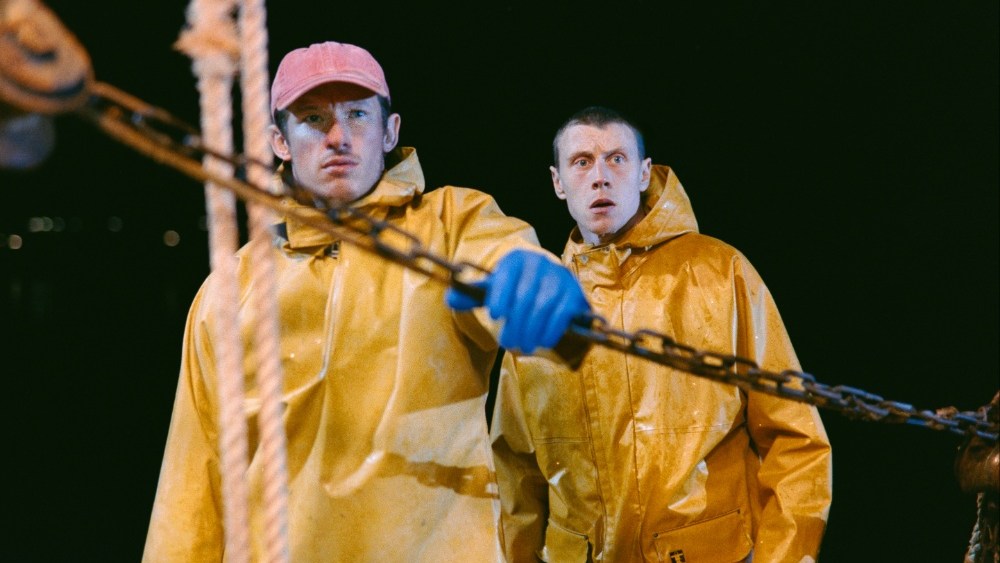Authenticity is key for BAFTA-winning director Mark Jenkin, whose “Rose of Nevada” premieres in Venice Film Festival‘s Horizons section Aug. 30, but all is not as it first appears. The ghost story stars George MacKay, Callum Turner and Francis Magee.
The film starts with the appearance of an unmanned fishing boat in the harbor of a village in Cornwall, on the West Coast of England. It transpires that the mysterious vessel, the Rose of Nevada, went missing with its crew three decades before. The village has since fallen on hard times, and its resident see the boat’s return as an omen that their fortunes could be about to turn.
A new crew is hastily assembled: quiet and sensitive Nick (MacKay), loud and confident Liam (Turner) and Murgey (Magee), a salty sea dog who will captain the vessel. They set out to sea where they net a large catch, but when they return to the village, they find they’ve sailed back in time to when the boat first disappeared and they are greeted as if they were the original crew.
Jenkin loves films that play with time, like those of Christopher Nolan, for example. “All of the filmmaking that I love is either about time or uses the film form to communicate ideas of fractured time,” Jenkin tells Variety. “Only cinema can do that. It’s so in tune with the way that our minds work, how memories and the subconscious work that that’s why we had to invent cinema: To make sense of all that.”
Jenkin lives in and was brought up in Cornwall, where deep-sea fishing is still a major industry. Jenkin wanted to imbue the film is the sense of impending tragedy, which is a fact of life for such communities. “Fishing is a dangerous job. They are risking their lives,” he says. “I really wanted to get across that sense of how hard the work was.”
The cast and crew had a taste of this life. “If there’s one thing that’s harder than fishing, it’s making a film about fishing, because then there’s even less space on the deck,” he jokes.
Magee used to be a fisherman, and this helped put the mind of the boat’s owner in real life, Lee Carter, at ease. “It was great for Francis to hang out with Lee so that Lee would then have the confidence to hand the boat over to him,” Jenkin says. “It did mean that he was able to be on the wheel of the boat, and Lee would be crouched down in the wheelhouse out of shot, and he would have faith that Francis could skipper the boat out of the harbor.”
He adds, “Neither George nor Callum were experienced seamen, so they have a certain way of walking on the boat that shows that, whereas Francis just strides around the deck like he’s just walking around his kitchen.”
MacKay, in particular, worked on his Cornish accent. “George stayed in that accent all the way through. And it’s funny because, even now, when he speaks to me, he’s still got a little bit of the accent.”
Nick, who is the character closest to Jenkin’s own personality, tussles with a dilemma. “It’s the paradox of wanting to be within a community, but also being introverted,” he says. “He’s got a foil in Liam, who effortlessly slips into any environment.” In a sense, Nick finds his purpose when he travels back to the past, when the sense of community was so much stronger.
Jenkin’s own sense of community responsibility is demonstrated by his commitment to the students of Falmouth University, where he serves as professor of film practice. More than 30 students joined the film’s crew across various departments. “I’ve got several graduates [from Falmouth] who I now work with in my core team,” he says. “I always joke that I’m in a position where I can just cherry-pick the best of the students to come to work with me.”
Protagonist Pictures is handling sales on the film, which is produced by Denzil Monk at Bosena, with support from BFI, Film4 and Head Gear Film.


